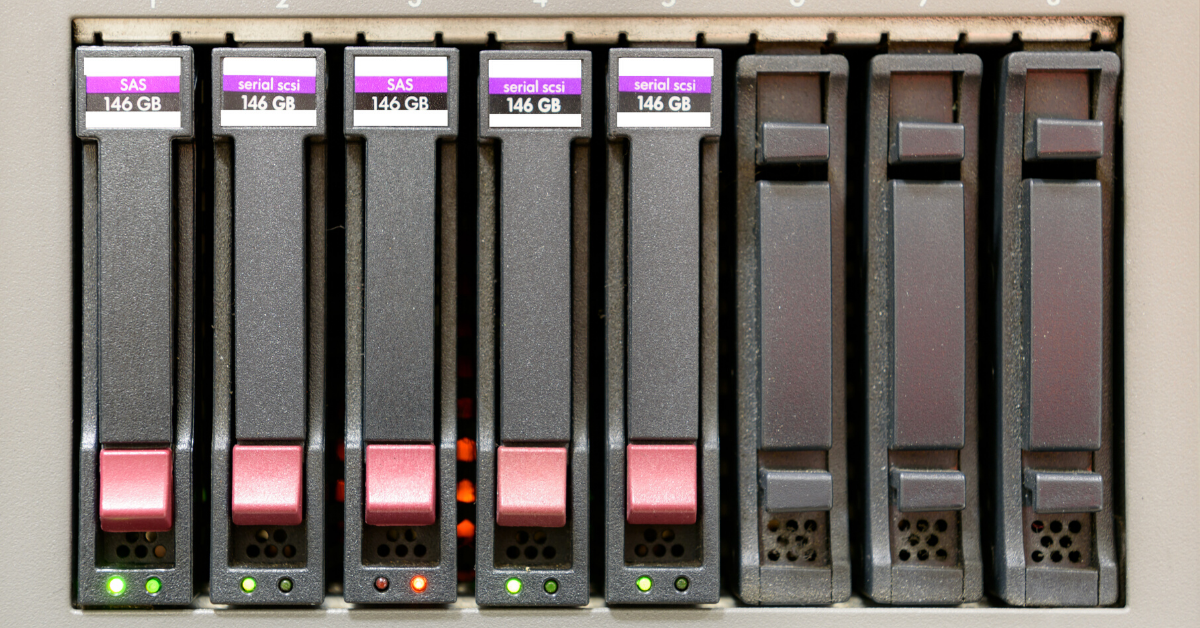What is the Difference Between a Server and a NAS Device?

Sharing and storing data is an essential component of an effective business. It allows companies to share information quickly and keep it secure.
As the typical small business starts to expand, it’s common for owners to continue to add computers to help improve productivity. However, as they add more computers and users to the network, efficiency goes down because critical information and processes are spread across several computers.
Many small companies fail to realize how vital data organization is to their workflow and business as a whole. A network that has more than two users that need access to data should consider investing in either a server or
Network Attached Storage (NAS). These systems are especially important for businesses that plan to scale in size.
Benefits of Servers and NAS Devices
Servers and NAS devices offer businesses similar capabilities, by providing a centralized location for users on a network to store, access, and share files. They offer a great way to share data across devices and give businesses greater control over who can access specific files and folders. Here are two of the main benefits a small business can expect when utilizing either a server or a NAS device:
Shareability. With the proper software, users can share certain folders easily over the internet. This is a convenient option for companies that need to share specific information with colleagues, customers, or vendors.
Automatic backups. Running a business can be hectic and many companies find out too late that they needed to back up their data regularly. Manually updating and backing up data can fall by the wayside when there are more pressing things to do. Servers and NAS both allow users to automatically create a locally stored backup for all business data. Using these systems can help prevent any of the painful consequences of lost data.
While servers and NAS devices offer similar capabilities, they each have different strengths. Here are the advantages of servers and NAS devices to help you find which works best for you and your business.
Advantages of a Server
A server is a type of computer that manages network resources and provides data, services or programs to other computers. Personal computers communicate with the server over a shared network instead of each other for faster and more secure information delivery.
Businesses with more than two employees who need to share work-related information and have more than one computer should consider a server for better security, faster connection, and data backup. Also, businesses that need secure access to computer files for traveling employees or would like to control employee access to sensitive information would benefit from a server.
Some of the advantages of a server include:
Powerful hardware. Servers allow you to store large amounts of data and improve efficiency. If your network is overburdened, a server can help boost your processing power and better allocate traffic
Great functionality. With the ability to install third-party software, servers give users more functionality and control over applications they need to run their businesses.
Redundancy. The redundancy of system components allows for more reliability and an "always-on" system, imperative for business-critical environments. Servers contain redundant and reliable processors, memory, drives (managed by RAID), and power supplies to deliver an integrated layer of protection for business applications.
Advantages of NAS Devices
While servers continue to be a go-to option for sharing and storing data, NAS is growing in popularity for small businesses. A NAS device
attaches to a network and stores data. It provides a convenient, centralized location to sync folders for access and modification across the network.
Some reasons to consider NAS include:
Affordable. File servers often require costly, licensed software to run them. Because the built-in NAS software has fewer features, settings, and customizations, it's significantly cheaper. Also, NAS devices have less powerful hardware which brings the price down even further.
Ease of use. The added customization of servers can lead to a complicated setup and maintenance for users without technical abilities or dedicated IT teams. Small businesses with limited expertise, find that NAS offers a great alternative. NAS is simple to operate because the software is less sophisticated and offers fewer configuration options, which requires less management than application servers.
Find the Right Storage for Your Needs
Servers and NAS devices offer great ways to store and back up data. Which option you choose depends on your unique needs when it comes to space, security, configuration and budget.
If you're struggling to decide which is right for you, reach out to one of our experts. We can help you determine your needs and navigate which device is best for you.
Contact us online or give us a call today at 1-855-AVENTIS.
Related Reading:
|